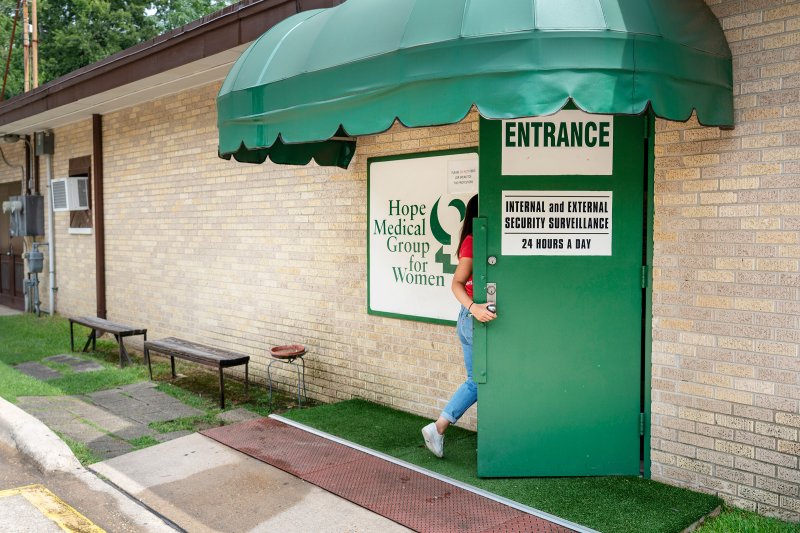
Kathaleen Pittman likes to leave the door of her office at Hope Medical Group for Women open at the end of the day. That way she can watch patients leave after their abortions, and absorb the palpable sense of relief in the clinic’s hallways. “Being able to see them before the procedure, after the procedure, and just have them say how grateful they are that they were able to make it in when they did, that just can make all the difference in the world,” Pittman says. “Aside from the craziness, I absolutely still love this work.”
Pittman, who has been at Hope since 1992 and is now the clinic’s administrator, may not be able to do that work much longer. Located in a squat, unassuming building in Shreveport, Louisiana, Hope is one of three abortion clinics left in the state. It’s locked in a legal battle with the state and anti-abortion groups that has launched both sides into a national fight over women’s rights to an abortion. On March 4, the Supreme Court will hear arguments in June Medical Services v. Russo, in which Hope is a plaintiff. It’s the first major abortion case before the nation’s highest court since President Donald Trump’s two justices, Neil Gorsuch and Brett Kavanaugh, joined the bench. The court’s decision could impact how safely women can access abortion in the U.S.











